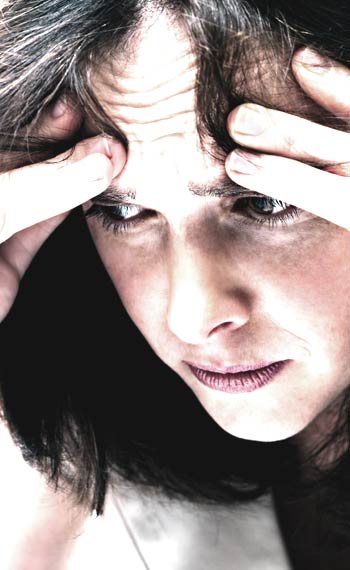Anxiety
PSYCHOLOGICALLY AND PHYSICALLY
Anxiety psychologically and physically impacts the individual who develops different types of anxiety disorders. It affects behavior, thoughts, emotions, and physical health.
Although anxiety disorders are the most common mental health issues, they are also the most stigmatized. In Switzerland, up to 20% of the population may suffer from them.
The Stress Clinic aims to fight against the social stigma associated with anxiety which often prevents those affected from seeking help.
Anxiety disorders can be treated successfully. Our team will help you distinguish between a legitimate feeling of anxiety and an anxiety disorder that is accompanied by disproportionate fear or distress. Contact the clinic to receive a personal medical opinion.
Treatment for anxiety
The Geneva Stress Clinic treats anxiety through cognitive behavioral therapies based on scientific research. Such treatment helps patients understand their own thought patterns, as well as the operations of their brains in order to become desensitized to their fears.
Who can be affected by anxiety disorders?
Anxiety disorders can affect both children and adults. They do not constitute a weakness or mental instability.
Recognizing anxiety disorders
Different types of anxiety disorders:
Anxiety causes bodily sensations, feelings and emotions which immerse the affected individual in a state of suffering characterized by:
- Panic attacks
- Phobias
- Post-traumatic stress disorder
- Obsessive-compulsive disorder
- Psychosomatic events (abdominal pains, headaches…)
- Generalized anxiety

Symptoms of anxiety disorders:
Anyone can be affected by the following symptoms for a short period. It is only when they are prolonged, intense, and disrupt your life that you should consider the possibility that you have an anxiety disorder and contact a healthcare professional.
Depending on the disorder, and with more or less intensity, the symptoms include:
- Rapid heart rate, palpitations, or chest pain
- Shortness of breath, panting, dry mouth
- Redness
- Nausea or vomiting
- Tremors, muscle tension
- Dizziness
- Hot flushes, sweating, or chills
- Difficulty sleeping
- Inability to concentrate
Free yourself from anxiety disorders to improve your daily life
Anxiety disorders create real suffering that may often be accompanied by depression, eating disorders, or alcohol/drug abuse.
Rare is the person who has never felt a feeling of anxiety or fear in a stressful situation at work, when organizing an important event, or during an exam.
However, red flags should come up when these unpleasant situations become worse in people who are suffering from anxiety disorders and destroy their daily lives.
Anxiety disorders cause such people to suffer for long periods, with intense fear or distress that seem disproportional to actual events.
The causes and factors of anxiety
Anxiety is a reaction to stress due to various factors, such as biological, personal, socio-economic, and intellectual factors.
Research has shown that a set of biological factors, intellectual functions, and personal circumstances combined with socio-economic factors create anxiety disorders.
Types of anxiety disorders
There are five different types of anxiety disorders:
-
Panic disorders
-
Phobias
-
Post-traumatic stress disorders (PTSD)
-
Obsessive-compulsive disorders (OCD)
-
Generalized anxiety disorders (GAD)
Find more information on anxiety disorders
Make an appointment for a complete personal assessment.



